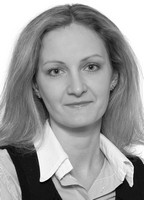Formation of value orientations in children and teenagers in sports activity
Фотографии:
ˑ:
Formation of value orientations in children and teenagers in sports activity
E.O. Panova, A.I. Ushnikov, associate professor, Ph.D., Ulyanovsk state pedagogical university, Ulyanovsk
Key words: sports activity, schoolchildren, organization and content, consideration of interests, pedagogical experiment, kinds of sport.
Sports activity is of complex content, stipulated by multidirectional nature and manifold moves, hampering orientation for children and teenagers and their parents in selection of sport most suitable for their character features, body-weight indices, functional status, typological specifics etc.
As follows from the analysis of specialized literature, study and generalization of advanced teaching experience, materials of personal researches, junior schoolchildren are involved in sports activity by choosing a certain sport using methods of sport selection. However, imperfection of the technique of sports selection of children results in significant weeding out of the ones who train and choose some other sport but often lose interest in sport. Sports activity is one the key factors of rational life organization, promoting the volume of muscle work necessary for normal body development. Consequently, involvement of children and teenagers in sports activity is one of the main tasks in solution of the problem of growing healthy generations.
The purpose of the present research was theoretical substantiation of the structural content of sports activity of children and teenagers, studying youth.
Proceeding from the experimental validation, the new technological approach to organization of sport activity for children, teenagers and studying youth was proved to be effective and advisable thanks to allocation of supportive exercises, laying the basis of overall and special physical fitness; view of age and individual features of pupils of different ages, their interests, need and requirements. Moreover, explanatory work on the necessity of exact performance of motor tasks in compliance with the requirements stated in every training was of special importance.
Bibliography
1. Balsevich, V.K. Health-saving function of education / V.K. Balsevich // Obrazovatel'naya politika. – 2007. – № 6. – P. 4–9. (In Russian)
2. Vizitey, N.N. Physical culture and sport as a social phenomenon: philosophic essays / N.N. Vizitey. – Kishinev: Shtiintsa, 1986. – 164 P. (In Russian)
3. Lubysheva, L.I. School sports culture /L.I. Lubysheva. – Moscow: Teoriya i praktika fizicheskoy kultury, 2006. –174 P. (In Russian)
4. Stolyarov, V.I. Modernization of physical education at comprehensive school / V.I. Stolyarov, V.K. Balsevich, V.P. Mochenov, L.I. Lubysheva. – Moscow: Teoriya i praktika fizicheskoy kultury i sporta, 2009. – 320 P. (In Russian)



 Журнал "THEORY AND PRACTICE
Журнал "THEORY AND PRACTICE